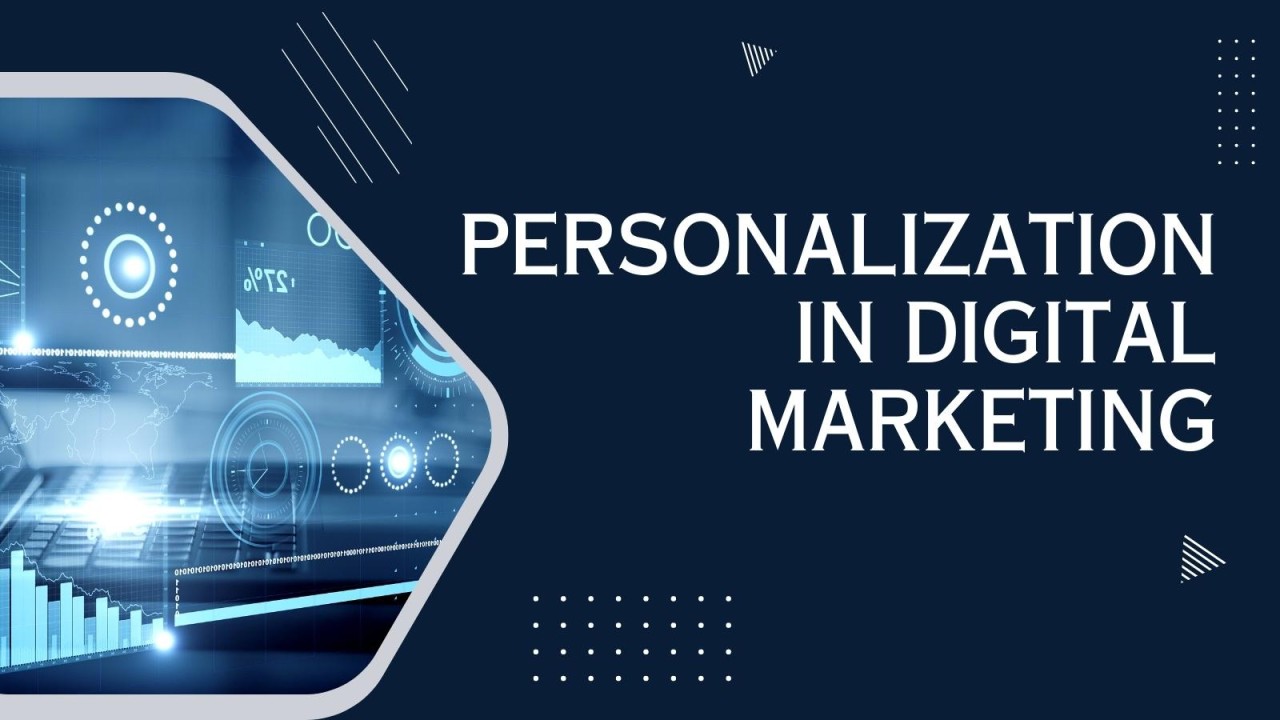In today’s digital landscape, personalization is no longer just a buzzword; it’s a fundamental strategy that shapes how businesses engage with their customers. As consumers become increasingly inundated with generic marketing messages, they have come to expect tailored experiences that resonate with their unique preferences and needs. This blog will explore why personalization matters in digital marketing and how it can significantly impact customer engagement, loyalty, and overall business success.

Table of Contents
Toggle1. Understanding Personalization in Digital Marketing
Personalization in digital marketing refers to the practice of delivering individualized content, recommendations, and experiences to consumers based on their preferences, behaviors, and interactions with a brand. This approach leverages data and analytics to create a more relevant and engaging experience for each user, whether through targeted emails, customized website content, or personalized product recommendations.
2. Enhanced Customer Experience
One of the primary reasons personalization matters is its ability to enhance the overall customer experience. When consumers encounter relevant content that aligns with their interests, they are more likely to engage with a brand positively. Here’s how personalization contributes to a better customer experience:
- Relevance: Tailored messages resonate more deeply with consumers, making them feel understood and valued. For example, personalized product recommendations based on previous purchases can lead to increased sales.
- Convenience: Personalization simplifies the customer journey by presenting users with the most pertinent information or products, reducing the time and effort required to find what they need.
3. Increased Customer Engagement
Personalized marketing efforts lead to higher engagement rates across various channels. When consumers receive content that speaks directly to their interests and needs, they are more likely to interact with it. Here are a few ways personalization boosts engagement:
- Targeted Content: Personalized emails, social media posts, and advertisements can significantly increase open and click-through rates. A study found that personalized emails generate six times higher transaction rates than non-personalized ones.
- Improved Interaction: Interactive elements, such as polls and quizzes, can be tailored to specific audience segments, leading to greater participation and feedback.
4. Building Customer Loyalty
Personalization fosters a deeper connection between consumers and brands, contributing to long-term loyalty. When customers feel valued and understood, they are more likely to remain loyal to a brand. Here’s how personalization builds loyalty:
- Trust and Credibility: Consistently delivering personalized experiences helps establish trust. Customers are more likely to return to a brand that understands their preferences and provides relevant content.
- Emotional Connection: Personalized marketing can create emotional bonds by aligning with customers’ values and lifestyles. Brands that connect on a personal level often enjoy higher customer retention rates.
5. Data-Driven Insights
Personalization relies heavily on data and analytics to understand customer behavior and preferences. This data-driven approach enables businesses to make informed marketing decisions. Here’s why data matters:
- Behavioral Insights: By analyzing customer interactions, businesses can identify patterns and trends that inform their marketing strategies. This leads to more effective targeting and content creation.
- Continuous Improvement: Regularly collecting and analyzing data allows brands to adapt their personalization efforts based on changing customer preferences and market trends.
6. Competitive Advantage
In a crowded marketplace, personalization can provide a significant competitive edge. Brands that prioritize personalized experiences stand out from their competitors. Here’s how:
- Differentiation: Personalization allows brands to differentiate themselves by offering unique experiences that cater to individual customer needs, setting them apart from competitors that take a one-size-fits-all approach.
- Higher Conversion Rates: Personalized marketing campaigns often yield higher conversion rates. By targeting consumers with relevant offers, businesses can increase the likelihood of purchase.
7. Enhancing ROI
Investing in personalization can lead to substantial returns. Research shows that personalized marketing campaigns can result in higher revenue and ROI. Here’s how:
- Increased Sales: When customers receive personalized recommendations, they are more likely to make additional purchases, leading to increased average order values.
- Cost Efficiency: Personalization can reduce wasted marketing efforts by ensuring that messages reach the right audience, ultimately leading to a more efficient allocation of resources.
8. Strategies for Implementing Personalization
To effectively incorporate personalization into your digital marketing strategy, consider the following best practices:
- Collect Data: Gather customer data through various channels, such as website interactions, social media engagement, and purchase history.
- Segment Your Audience: Divide your audience into segments based on demographics, behaviors, and preferences to tailor content and offers effectively.
- Leverage Automation Tools: Use marketing automation tools to deliver personalized messages at scale. These tools can help trigger personalized emails and recommend products based on user behavior.
- Continuously Optimize: Regularly analyze the performance of your personalized marketing efforts and adjust strategies based on data-driven insights.
Conclusion
Personalization is no longer a luxury; it’s a necessity in the realm of digital marketing. By understanding the importance of tailoring experiences to individual customers, brands can enhance engagement, build loyalty, and drive conversions. As consumers continue to expect personalized interactions, businesses that prioritize personalization will not only meet these expectations but also gain a competitive advantage in the ever-evolving digital landscape. Embracing personalization is key to cultivating meaningful relationships with customers and achieving long-term success in today’s marketplace.


No responses yet